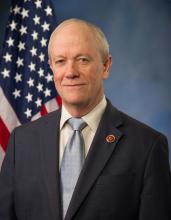Votes for Measure X will now count; sales taxes in the county could go to 10.75%, highest in California; Glazer’s second tax increase measure on November ballot

State Senator Steve Glazer. From his campaign Facebook page.
By Allen Payton
On the last day possible, Gov. Gavin Newsom signed into law a variety of bills on Thursday, including SB1349 by State Senator Steve Glazer, allowing a countywide half-cent sales tax increase which is designated Measure X on the November ballot in Contra Costa. The votes on that measure will now count. Had the governor vetoed the bill the votes would not have counted. He also had the option of not signing it by the Sept. 30th deadline and the bill would have become law.
The ballot language for Measure X reads as follows: “To keep Contra Costa’s regional hospital open and staffed; fund community health centers; provide timely fire and emergency response; support crucial safety-net services; invest in early childhood services; protect vulnerable populations; and for other essential county services, shall the Contra Costa County measure levying a ½ cent sales tax, exempting food sales, providing an estimated $81,000,000 annually for 20 years that the State cannot take, with funds benefitting County residents, be adopted?”
Glazer introduced the bill in the State Senate on February 21, 2020 focusing on “State responsibility area fire prevention fees”. He changed it to, “Transactions and use taxes: County of Contra Costa” on April 8, 2020 after the March Primary election was decided and the countywide additional half-cent sales tax increase for transportation failed.
It took some maneuvering in the State Senate Governance & Finance Committee to get the bill to the floor for a full vote. The bill first failed on a 3-2-2 vote on May 21. A motion to reconsider the bill then passed 7-0 on May 28 and a final committee vote was held on June 3 with just enough to pass by a vote of 4-2-1. It then passed the full Senate on June 11 by a vote of 27-11-2 with both Glazer and State Senator Nancy Skinner, who represents all of West County, voting in favor.
In the Assembly, Member Tim Grayson carried the bill which passed 48-23-8, with the other three Assemblymembers representing Contra Costa County, Jim Frazier, Rebecca Bauer-Kahan and Buffy Wicks not voting.
The Contra Costa County Public Managers Association was coordinating the effort to get the bill passed and the City Managers were the ones who endorsed it, not the various city councils.
The state has a sales tax rate of 7.25%, decreased from 7.5% on January 1, 2017, and state law prevented counties from charging more than 9.25% prior to the bill becoming law. That includes the half-cent sales tax for BART and the additional half-cent sales tax for transportation through the Contra Costa Transportation Authority. That leaves 1% remaining by which the county can increase its sales tax.
The Board of Supervisors considered a sales tax increase that would have only applied to unincorporated areas outside the 19 city limits. But that was quietly set aside.
According to the Senate Governance & Finance Committee Bill Analysis the earlier version of the bill that passed the Senate the first time, would have allowed a possible increase in the countywide sales tax rate to 11.75% in cities that already have a 1% sales tax such as in Antioch, and as high as 12.25% in El Cerrito which has a 1.5% city sales tax. However, the governor’s office said that went too far and the final bill was scaled back.
California’s sales tax rate is high compared to other states, especially when incorporating locally imposed district taxes. Tax experts argue that sales and use taxes are regressive, meaning that the tax incidence falls more on low-income individuals than high-income individuals because those of lesser means generally spend a greater percentage of their income on taxable sales, instead of intangible products or services which are not taxed.
By removing the current Contra Costa Transportation Authority and BART taxes as counting against the cap, in the final version of SB 1349, which passed the Senate the second time and signed by Newsom, allows an additional 1% of room for the county and each of its 19 cities to impose another district of up to 1% in sales tax. If voters approve the 1/2% allowed under Measure X, when it states that existing taxes do not count against the cap, the combined rate would increase to 8.75% countywide, plus any current city rates. The bill also grants Contra Costa County an additional authorization for another 1/2% sales tax increase, such as for the Contra Costa Transportation Authority, thereby boosting the maximum countywide rate to 9.25%, plus any current city rates.
That could result in a rate as high as 10.75% in the City of El Cerrito, where an additional 1.5% rate currently applies, and a 10.25% rate in the City of Antioch where they have a current 1% sales tax.
Glazer had the support of his bill from the California Labor Federation, California Professional Firefighters, California Teamsters Public Affairs Council, Contra Costa County Board of Supervisors, Contra Costa Transportation Authority, International Federation of Professional and Technical Engineers Local 21, Office and Professional Employees International Union Local 29, and SEIU California.
Those opposed to SB1349 were the Alliance of Contra Costa Taxpayers, California Taxpayers Association, Contra Costa County Taxpayers Association, Howard Jarvis Taxpayers Association and the Transportation Solutions Defense and Education Fund.
In spite of campaigning as a fiscal conservative, touting a hold the line approach to new taxes, this is Glazer’s second measure on the November ballot that will increase taxes if passed. The other is statewide Prop. 19, which will increase taxes on inherited homes or commercial property. According to Ballotpedia, “The ballot measure would eliminate the parent-to-child and grandparent-to-grandchild exemption in cases where the child or grandchild does not use the inherited property as their principal residence, such as using a property a rental house or a second home. When the inherited property is used as the recipient’s principal residence but has a market value above $1 million, an upward adjustment in assessed value would occur. The ballot measure would also apply these rules to certain farms. Beginning on February 16, 2023, the taxable value of an inherited principal residential property would be adjusted each year at a rate equal to the change in the California House Price Index.”
Following is the Legislative Counsel’s Digest and text of Glazer’s bill:
Senate Bill No. 1349
CHAPTER 369
An act to amend Section 29140 of the Public Utilities Code, and to amend Section 7291 of the Revenue and Taxation Code, relating to taxation.
[ Approved by Governor September 30, 2020. Filed with Secretary of State September 30, 2020. ]
LEGISLATIVE COUNSEL’S DIGEST
SB 1349, Glazer. Transactions and use taxes: County of Contra Costa.
Existing law authorizes various specified cities and counties, subject to certain limitations and approval requirements, to levy a transactions and use tax for general or specific purposes, in accordance with the procedures and requirements set forth in the Transactions and Use Tax Law. A provision of the Transactions and Use Tax Law prohibits the combined rate of all taxes that may be imposed in accordance with that law in a county from exceeding 2%.
Existing law authorizes the Contra Costa Transportation Authority to impose a transactions and use tax for the support of countywide transportation programs at a rate of no more than 0.5% that, in combination with other transactions and use taxes, exceeds the above-described combined rate limit of 2%, if certain requirements are met, including a requirement that the ordinance proposing the transactions and use tax be submitted to, and approved by, the voters. Existing law repeals this authorization on December 31, 2020, if an ordinance proposing a transactions and use tax has not been approved by that date.
Existing law, the San Francisco Bay Area Rapid Transit District Act, creates the San Francisco Bay Area Rapid Transit District, which comprises a territory that includes the County of Contra Costa, and, among other things, authorizes the board of directors of the district to impose transactions and use taxes in conformity with the Transactions and Use Tax Law for specified purposes, subject to periodic legislative review and amendment, as provided.
This bill would provide that, notwithstanding the combined rate limit under the Transactions and Use Tax Law, neither a transaction and use tax rate imposed in the County of Contra Costa by the transportation authority under the above-described authority nor a transactions and use tax rate imposed by the San Francisco Bay Area Rapid Transit District, as specified, will be considered for purposes of that combined rate limit within the County of Contra Costa. The bill would declare that the changes made with regard to taxes imposed by the Contra Costa Transportation Authority for countywide transportation programs are declaratory of existing law.
This bill would make legislative findings and declarations as to the necessity of a special statute for the County of Contra Costa.
<hr size=1 width=1209 style=’width:907.1pt’ noshade style=’color:#333333′>
BILL TEXT
THE PEOPLE OF THE STATE OF CALIFORNIA DO ENACT AS FOLLOWS:
SECTION 1.
Section 29140 of the Public Utilities Code is amended to read:
29140.
(a) The board shall, by ordinance, impose transactions and use taxes in conformity with Part 1.6 (commencing with Section 7251) of Division 2 of the Revenue and Taxation Code for the purposes specified in Sections 29142 and 29142.2, subject to periodic legislative review and amendment.
(b) (1) Notwithstanding Section 7251.1 of the Revenue and Taxation Code, a transactions and use tax rate imposed pursuant to subdivision (a) on or before January 1, 2020, that applies within the County of Alameda shall not be considered for purposes of the combined rate limit within the County of Alameda established by that section.
(2) Notwithstanding Section 7251.1 of the Revenue and Taxation Code, a transactions and use tax rate imposed pursuant to subdivision (a) on or before the effective date of the act adding this subdivision that applies within the County of Contra Costa shall not be considered for purposes of the combined rate limit within the County of Contra Costa established by that section.
SEC. 2.
Section 7291 of the Revenue and Taxation Code is amended to read:
7291.
(a) Notwithstanding any other law, the Contra Costa Transportation Authority may impose a transactions and use tax for the support of countywide transportation programs at a rate of no more than 0.5 percent that would, in combination with all taxes imposed pursuant to Part 1.6 (commencing with Section 7251), exceed the limit established in Section 7251.1, if all of the following requirements are met:
(1) The Contra Costa Transportation Authority adopts an ordinance proposing the transactions and use tax by any applicable voting approval requirement.
(2) The ordinance proposing the transactions and use tax is submitted to the electorate and is approved by the voters voting on the ordinance pursuant to Article XIII C of the California Constitution.
(3) The transactions and use tax conforms to the Transactions and Use Tax Law, Part 1.6 (commencing with Section 7251), other than Section 7251.1.
(b) (1) Notwithstanding Section 7251.1, a transactions and use tax rate imposed pursuant to subdivision (a) shall not be considered for purposes of the combined rate limit established by Section 7251.1.
(2) This subdivision does not constitute a change in, but is declaratory of, existing law.
SEC. 3.
The Legislature finds and declares that a special statute is necessary and that a general statute cannot be made applicable within the meaning of Section 16 of Article IV of the California Constitution because of the unique fiscal pressures being experienced in the County of Contra Costa.


















 SACRAMENTO – Wednesday, Governor Gavin Newsom signed
SACRAMENTO – Wednesday, Governor Gavin Newsom signed  SACRAMENTO — Governor Gavin Newsom on Monday announced that he had signed legislation to protect millions of tenants from eviction and property owners from foreclosure due to the economic impacts of COVID-19. These protections apply to tenants who declare an inability to pay all or part of the rent due to a COVID-related reason.
SACRAMENTO — Governor Gavin Newsom on Monday announced that he had signed legislation to protect millions of tenants from eviction and property owners from foreclosure due to the economic impacts of COVID-19. These protections apply to tenants who declare an inability to pay all or part of the rent due to a COVID-related reason.














